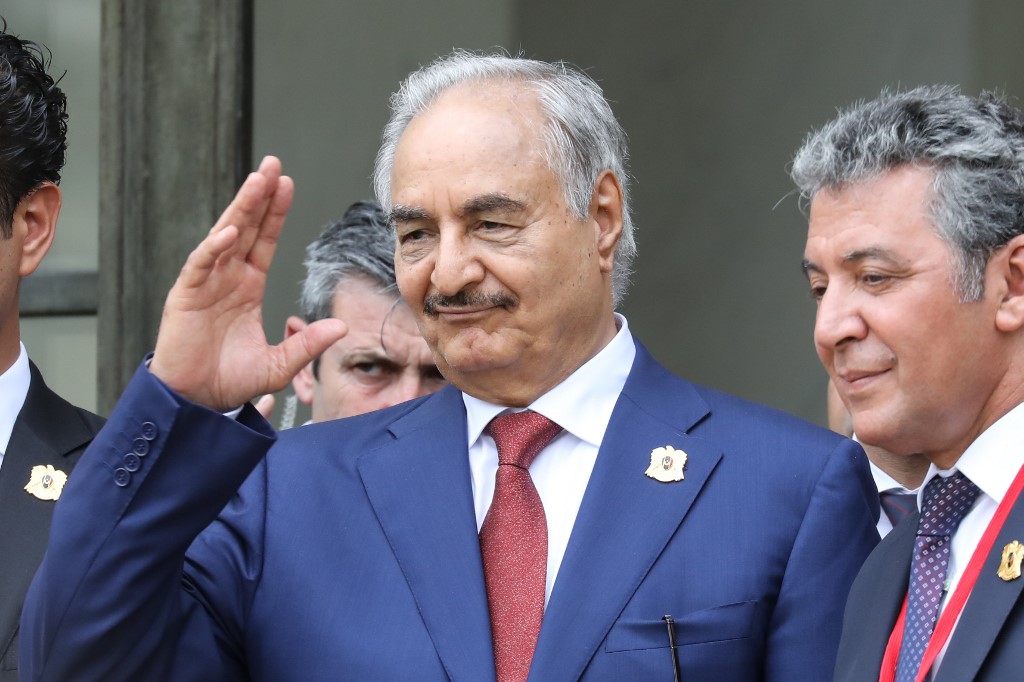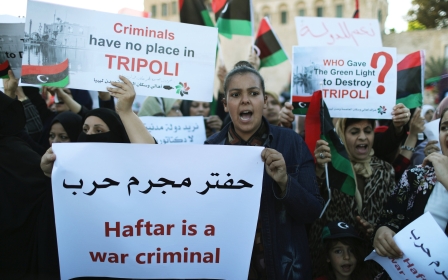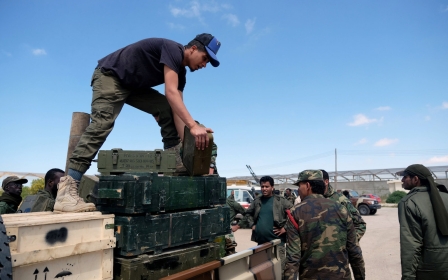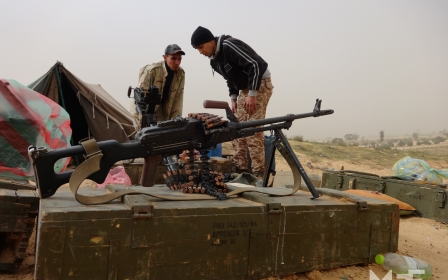The Gulf and Europe: Libya's proxy war is a web of conflicting narratives
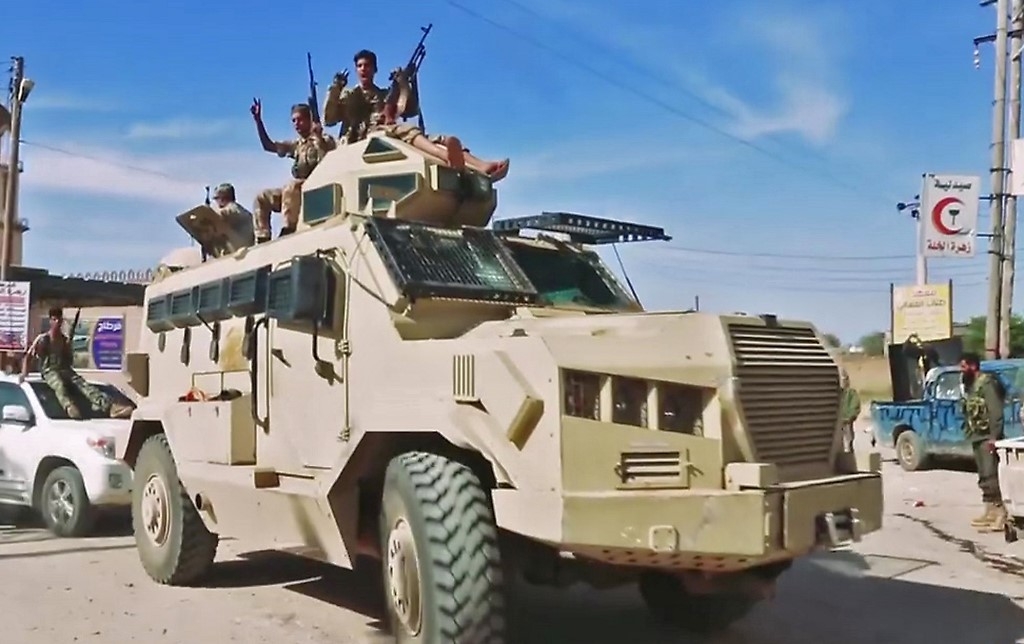
The Libya crisis is characterised by multiple different narratives, each serving the interests of one or more of the many actors competing on the ground for the remains of Colonel Muammar Gaddafi's former Jamahiriya.
The dramatic reality, however, is a conflict determined almost exclusively by international interests far removed from local society.
In particular, Libya is being shaped by the crisis in the Gulf, with Qatar, Turkey and Italy pitted against Saudi Arabia, the United Arab Emirates, Egypt and France, with the Gulf states the most important players.
It is thus a serious mistake to believe that Italy, France or Egypt are the main external actors in the Libya conflict.
The global economic crisis has radically transformed the relationship between these actors and the monarchies of the Gulf, which represent the primary source of financing for European industrial programmes, making them docile and compliant allies of the most controversial regional policies.
Libya, moreover, has become the arena for a proxy war between these different actors, with the Saudis and Emiratis supporting Khalifa Haftar against groups funded by Qatar and branded by the general as Islamist terrorists.
Overthrowing Gaddafi
The collapse of the Gaddafi regime was determined in 2011 by the intervention of Qatar and France, which turned a spontaneous local uprising into a full-scale conflict.
Qatar offered political - and probably financial - support to mainstream Islamists with non-hostile positions towards the authoritarian monarchies of the Gulf.
The inadequacy of most local confessional political organisations, however, led it to focus exclusively on the Muslim Brotherhood, eventually revealing the group's limits and ideological ambiguities.
France was interested in the possibility of eroding Italy's dominance in Libya's energy market and infrastructure sector
France, on the other hand, looked at Libya mainly from an economic point of view, interested in the possibility of eroding Italy's dominance in the local energy market and infrastructure sector.
France's initial support for Qatar in Libya also responded to the need to appease its economic partners in the Gulf.
The fall of Gaddafi - achieved through a full-scale disinformation campaign and the intervention of Nato - represented both a success and a failure for Qatar, with the resurgence of the Muslim Brotherhood, the wrath of the UAE and the beginning of a new phase of conflict.
Eventually, it led to the marginalisation of Qatar through the powerful support granted to Egypt and General Khalifa Haftar.
From this polarisation, contrasting and contradictory narratives have emerged. On one side, Haftar's campaign against Tripoli became a battle of secular forces against terrorism and Islamic radicalism, while on the other, it was a confrontation between revolutionary forces - those who promoted the revolt against Gaddafi - and reactionary ones.
No less complex is the web of narratives and reciprocal accusations among militias, tribes, parties and families.
Gulf's proxy war
The polarisation of the Libya conflict has fuelled political and territorial fragmentation. The apex of the confrontation is represented by the dichotomy between the political vision of Qatar and that of the UAE, supported by Saudi Arabia. Immediately behind this dimension are the interests of other regional actors.
Supporting Qatar are Italy, Turkey, Algeria and Tunisia; aligned with the UAE are Saudi Arabia, Egypt, France and, for different reasons, Russia. It is more difficult to define the role of the United States, which has shifted from a position closer to Qatar under the Obama administration, towards a more confused and oft-changing approach under President Donald Trump.
Italy is trying to defend its energy and infrastructural interests in Libya, along with its political influence and desire to limit migration through the North African state.
Tunisia, the only country in the Maghreb where a political formula involving secular and Islamic forces is surviving, shares common security concerns with Libya along their southern border.
For its part, Turkey has always shown its support for the political entity of Tripoli, both because of the presence of Islamist forces, but also due to growing reservations over the regional policies of Riyadh and Abu Dhabi.
Saudi Arabia has not paid particular attention to Libya, focusing more on repelling the Muslim Brotherhood in Egypt. Riyadh sustains the UAE in Libya more because of their general, common vision.
Existential threat
Egypt is the UAE's primary ally in the Libya crisis, both because of their common struggle against the Muslim Brotherhood and due to strategic concerns over the security of Egypt's long western border with Libya.
The proliferation of armed fighters in the Sinai poses an existential threat to Cairo, and the possibility of another front of crisis to the west is a concrete danger.
France, on the other hand, looks at Libya through the multiple layers of local interests, related to energy production and infrastructure development, and regional opportunities, through the appeasement of those fuelling French industry.
The attitude of Russia towards Libya is more fluid and uncertain, built on a mixture of opposition to the US and the desire for further projection into the Mediterranean.
At the local level, Libya is divided between the Government of National Accord (GNA) and the House of Representatives. Control of Libyan territory, however, remains the prerogative of a lower level, represented by a great number of territorial militias that differ from each other in terms of consistency and political orientation.
They are scarcely interested in the definition of a collective solution at a national level, instead focusing on local interests.
Haftar is the commander of the self-proclaimed Libyan National Army (LNA), which, despite its grandiose name, is actually a group of militias very different in number, capacity and political extraction. The LNA includes military units close to the old Gaddafi leadership and Salafist militias, as well as smaller groups formed in the aftermath of the 2011 civil war.
Military stalemate
Haftar can count on the support – rather ambiguous and often volatile – of some Zintan militias, as well as of several contractors of European, Russian and regional origin.
The GNA only recently succeeded in sealing a formal, albeit highly unstable, union of the principal militias engaged in the defence of Tripoli; the Tripoli Protection Force repelled the attack recently launched by Haftar. The GNA is also supported by several Misratan militias.
The conflict between the GNA and the House of Representatives today in the outskirts of Tripoli results from a blatant betrayal by Haftar
The conflict between the GNA and the House of Representatives today on the outskirts of Tripoli results from a blatant betrayal by Haftar, who, in the wake of the national reconciliation meetings in Ghadames, tried to secure his own leadership and the support of the international community by waging a conflict under the pretext of fighting terrorism.
But lacking material support from their Gulf allies, Haftar' forces have suffered significant losses, resulting in a military stalemate with no immediate solution in sight.
The views expressed in this article belong to the author and do not necessarily reflect the editorial policy of Middle East Eye.
Middle East Eye propose une couverture et une analyse indépendantes et incomparables du Moyen-Orient, de l’Afrique du Nord et d’autres régions du monde. Pour en savoir plus sur la reprise de ce contenu et les frais qui s’appliquent, veuillez remplir ce formulaire [en anglais]. Pour en savoir plus sur MEE, cliquez ici [en anglais].



